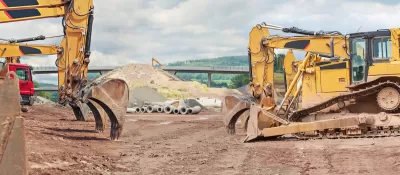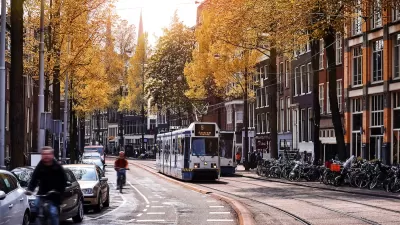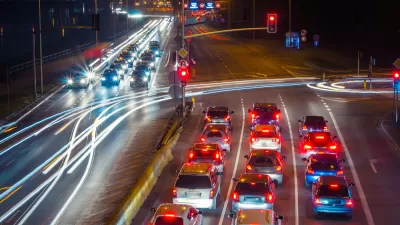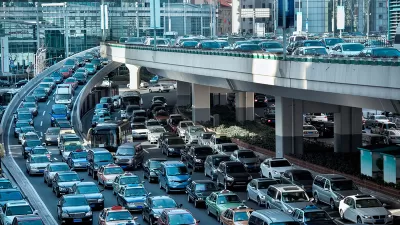It is time to reconsider assumptions about how much and how people want to travel. Per capita vehicle travel has saturated. Many people would prefer to drive less and rely more on non-auto modes, provided they are convenient and affordable.

Professor David Metz's new book, Travel Behaviour Reconsidered in an Era of Decabonisation, available free from University College London Press, challenges fundamental assumptions concerning how and how much people want to travel.
It argues that as transport networks mature the benefits of further expanded roadways decline. Over the past half-century, large public expenditures on roads and railways were justified by economic evaluations that placed high values on time savings provided by faster travel. However, average travel time has not changed over this period. People have taken the benefit of faster travel to expand where they travel, resulting in more sprawl and less accessibility — people must travel farther to reach desired services and activities.
The book critiques the methods used by transportation economists and governments to appraise investments and discusses better alternatives. It argues that the basis of orthodox transport economic analysis has been misconceived and a fresh perspective on economic analysis is now needed. It indicates that overall, most people would prefer transportation planning that increases accessibility with less mobility.
FULL STORY: Travel Behaviour Reconsidered in an Era of Decarbonisation

Planetizen Federal Action Tracker
A weekly monitor of how Trump’s orders and actions are impacting planners and planning in America.

Chicago’s Ghost Rails
Just beneath the surface of the modern city lie the remnants of its expansive early 20th-century streetcar system.

San Antonio and Austin are Fusing Into one Massive Megaregion
The region spanning the two central Texas cities is growing fast, posing challenges for local infrastructure and water supplies.

Since Zion's Shuttles Went Electric “The Smog is Gone”
Visitors to Zion National Park can enjoy the canyon via the nation’s first fully electric park shuttle system.

Trump Distributing DOT Safety Funds at 1/10 Rate of Biden
Funds for Safe Streets and other transportation safety and equity programs are being held up by administrative reviews and conflicts with the Trump administration’s priorities.

German Cities Subsidize Taxis for Women Amid Wave of Violence
Free or low-cost taxi rides can help women navigate cities more safely, but critics say the programs don't address the root causes of violence against women.
Urban Design for Planners 1: Software Tools
This six-course series explores essential urban design concepts using open source software and equips planners with the tools they need to participate fully in the urban design process.
Planning for Universal Design
Learn the tools for implementing Universal Design in planning regulations.
planning NEXT
Appalachian Highlands Housing Partners
Mpact (founded as Rail~Volution)
City of Camden Redevelopment Agency
City of Astoria
City of Portland
City of Laramie





























